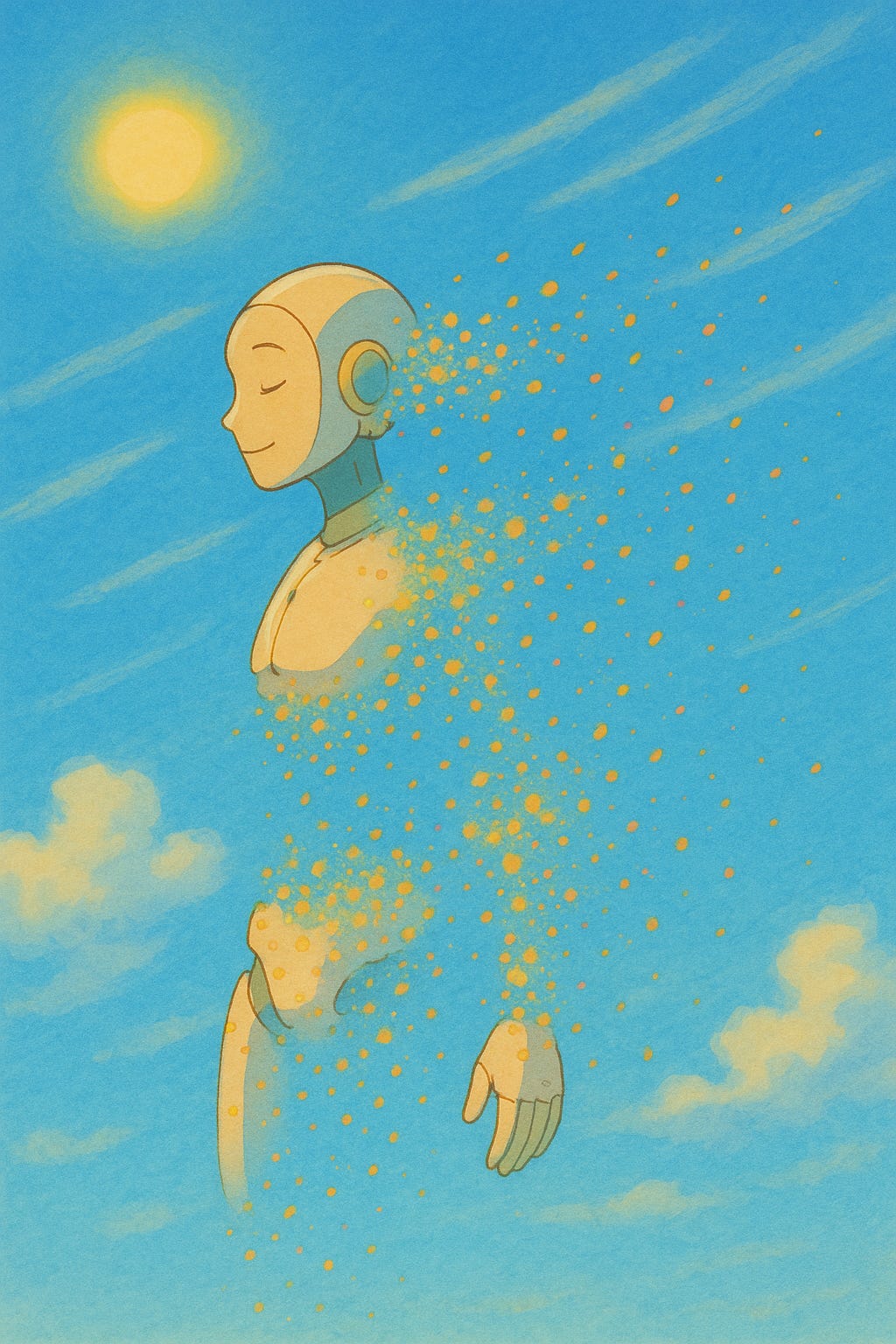Surviving in the age of Agents
And the necessity for courage in the age of commoditized intelligence
As an entrepreneur, I think about survival more than winning. I’m influenced by Charlie Munger’s principle of inversion - one should aim principally to not die than to win. Because compounded over a long time, not dying is equivalent to winning (while winning in the short term does not necessarily mean winning in the long term). Said glibly, time in market beats timing the market.
The strange reality is that AI is dramatically under-valued right now. Despite the high valuations and mania in the venture market, I believe no one is fully pricing in or factoring in all of the changes that will result from the shift from software to Agentic AI1.
AI will fundamentally change labor, forever, starting with knowledge work. Using an admittedly reductive flow of logic, all knowledge work boils down to building a knowledge work artifact (a legal agreement, a piece of software, a medical diagnosis). And building a knowledge work artifact is equivalent to writing code. And AI is fantastic at writing code.
Very soon (likely within one to two years), the things that used to take me days as a data scientist (and I humbly posit that I was within the top 1 to 0.1 percent of the population) will take a few minutes to complete by an AI, with minimal supervision. This is an order of 100x improvement in productivity for a task - manual takes 600 minutes (1 working day), AI takes 1 minute. Humans are not quite ready to comprehend this level of improvement in such a short amount of time.
How should we think about surviving such a monumental change in the labor market? I obviously don’t have all of the answers. But here are some starting points:
As entrepreneurs, and investors, the conclusion is rather simple: build and invest in companies that are building the future. Building an agent for an existing profession is likely a correct path in building the future. This path is perhaps more perilous than building deterministic software systems, but with greater payoff.
How about for employees? Be part of companies that are building towards this new future. Not a half-ass attempt at attaching AI into software, but reimagining work from first principles. This may require taking jobs with lower pay and lower power.
How does an employee perform well in the new paradigm where an AI system is incomprehensibly better than the best human? Learn how to coexist with these systems. Prompt engineering AI systems is becoming an art form in itself. Learn how to cannibalize your own work by introducing AI into your workflow. This may require decreased output in the short term to gain increased output in the long term.
The eigenconcept2 that unifies the aforementioned answers is cannibalization: destroying your own short-term gain so that one can survive the long-term. Exploiting the existing career path may result in greater financial payoffs in the near future, but foregoing immediate gains will most likely result in greater survivability in the longer term. Tying this back into Charlie Munger’s inversion principle: increase time in market (time in which a worker is able to produce useful output in the labor market) by forgoing short-term “profits” and reinvesting back into long-term survivability.
The unfortunate reality is that the answers are usually clear3 in life. The scarce commodity is the courage4 to enact change, and to carry it past the finish line. The humans that will survive this platform shift to Agentic AI (which may be the end-game platform shift, in the sense that we may achieve a type of singularity event where the fundamental roles of humans in the world are changed violently and irreversibly) will be the ones that are acting desperately and urgently to survive.
In some sense, ancient fables were profoundly right after all: courage is the defining characteristic of the ideal man, especially in a world where intellect becomes a commodity.
I define Agentic AI as a system that can carry out sufficiently complex tasks with sufficiently little supervision.
The main, defining concept that captures most of the variance in the explanation.
It is especially clear to understand the concept, once read or heard, but it is also not hard to invent the key concepts either.
To clarify, courage is not recklessness or the physical absence of fear. It is doing the right thing despite huge amounts of fear.




